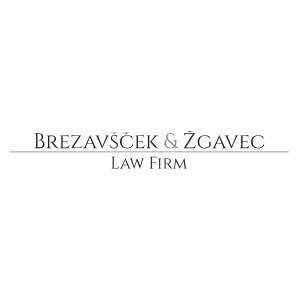Best Restructuring & Insolvency Lawyers in Slovenia
Share your needs with us, get contacted by law firms.
Free. Takes 2 min.
Or refine your search by selecting a city:
List of the best lawyers in Slovenia
About Restructuring & Insolvency Law in Slovenia
Restructuring and insolvency law in Slovenia provides a formal framework for financially distressed businesses and individuals to resolve their debts, either by restructuring obligations to allow for continued operations or by entering insolvency proceedings that may result in liquidation. These laws are designed to protect both debtors and creditors, balance their rights, and ensure an orderly process for debt resolution. The primary legislation governing these matters is the Slovenian Financial Operations, Insolvency Proceedings, and Compulsory Dissolution Act (ZFPPIPP), which sets the rules for restructuring, insolvency, bankruptcy, and compulsory settlement procedures.
Why You May Need a Lawyer
Engaging a lawyer with expertise in restructuring and insolvency can be crucial in several situations. Some common reasons include:
- You operate a business facing financial distress and need advice on how to restructure debts and avoid bankruptcy.
- You are an individual or sole trader overwhelmed by personal or business debts and are considering insolvency options.
- You are a creditor seeking to recover debts from an insolvent debtor or need representation in insolvency proceedings.
- You are a stakeholder in a company undergoing restructuring or insolvency and need to understand your legal rights and obligations.
- You want to initiate or defend against bankruptcy or compulsory settlement proceedings.
A qualified lawyer can assess your situation, explain your options, represent you in court or out-of-court negotiations, and help safeguard your interests throughout the process.
Local Laws Overview
Slovenia's restructuring and insolvency laws are largely contained in the ZFPPIPP. Key aspects include:
- Insolvency Proceedings: These are formal legal processes initiated when a business or individual cannot pay debts. Proceedings include bankruptcy, compulsory settlement, and debt restructuring.
- Preventive Restructuring: Designed to help viable businesses avoid insolvency by negotiating with creditors under court supervision while continuing operations.
- Out-of-Court Restructuring: Allows for debt settlements between debtors and creditors without court involvement, though such agreements are enforceable mainly among consenting parties.
- Creditor Rights: Creditors can participate in proceedings, vote on restructuring plans, and object to improper practices. Preferential claims (such as employees’ wages) have priority in payouts.
- Obligations on Debtors: Directors must act responsibly and, upon signs of insolvency, take timely legal action to minimize losses to creditors.
- Bankruptcy: If restructuring is not viable, bankruptcy proceedings lead to the liquidation of assets and the distribution of proceeds among creditors.
- Personal Insolvency: Individuals can use the personal bankruptcy procedures to obtain debt relief when unable to meet obligations.
The entire process is overseen by the courts, and formal proceedings are public to ensure transparency.
Frequently Asked Questions
What is the difference between restructuring and bankruptcy in Slovenia?
Restructuring aims to help financially troubled businesses or individuals pay off debts under new terms and continue operating. Bankruptcy involves liquidation of assets to pay creditors and typically marks the end of business operations.
Who can initiate insolvency proceedings in Slovenia?
Both debtors and creditors can initiate insolvency proceedings. Management of a company is legally obliged to act promptly if insolvency is apparent.
What are preventive restructuring proceedings?
Preventive restructuring allows viable companies to negotiate with creditors to adjust debts and avoid insolvency, usually with court oversight and sometimes temporary protection from enforcement actions.
Can individuals file for insolvency in Slovenia?
Yes, individuals can file for personal bankruptcy if they are unable to meet their financial obligations. This provides a legal route to resolve debts and seek debt relief under court supervision.
How are creditors involved in the insolvency process?
Creditors can file claims, participate in meetings, vote on settlement plans, and challenge decisions or actions within the proceedings to protect their interests.
Are all assets liquidated during bankruptcy?
Not always. Certain assets may be excluded from liquidation, for example, items essential for basic living or work. The specifics vary depending on whether the debtor is an individual or a company.
What happens to employees in a company bankruptcy?
Employees’ claims, such as unpaid wages, are given priority during the distribution of assets in bankruptcy proceedings. Employees may be eligible for payments from the Wage Guarantee Fund according to Slovenian law.
Can a company continue operating during restructuring?
Yes, the goal of restructuring is often to allow the company to keep operating while implementing measures to restore financial stability and satisfy creditors under new terms.
How long do insolvency proceedings typically take?
The duration varies greatly, depending on the complexity of the case and the number of creditors involved. Simple cases may close within months, while more complex proceedings can last several years.
What are the risks of delaying insolvency filing?
Delaying can result in greater losses for creditors and possible personal liability for directors or management. Slovenian law requires prompt action to minimize further damage when insolvency is realized.
Additional Resources
If you are seeking further help or information about restructuring and insolvency in Slovenia, consider the following resources:
- Slovenian Ministry of Justice - Provides information on insolvency laws, guidelines, and forms for proceedings.
- AJPES (Agency of the Republic of Slovenia for Public Legal Records and Related Services) - Maintains the insolvency register and publishes notifications about proceedings.
- Chamber of Commerce and Industry of Slovenia - Offers support and general information on business restructuring.
- Slovenian Bar Association - Directory of attorneys specialized in insolvency law.
- Courts of competent jurisdiction - Handle all formal insolvency procedures and provide guidance on necessary documentation.
Local business consultancies and insolvency administrators can also provide practical assistance and advice.
Next Steps
If you believe restructuring or insolvency options may be necessary for your situation:
- Gather all financial documentation, including balance sheets, debt records, and contracts.
- Consult with a qualified lawyer specializing in Slovenian restructuring and insolvency law to assess your options and obligations.
- Explore potential out-of-court settlements with creditors if possible, under legal advice.
- If necessary, prepare for formal court proceedings by collecting the required documents and evidence.
- Stay informed about your legal rights and obligations at every stage to protect your interests.
Taking timely action and seeking professional advice are essential for achieving the best possible outcome, whether you are a debtor, a creditor, or another interested party.
Lawzana helps you find the best lawyers and law firms in Slovenia through a curated and pre-screened list of qualified legal professionals. Our platform offers rankings and detailed profiles of attorneys and law firms, allowing you to compare based on practice areas, including Restructuring & Insolvency, experience, and client feedback.
Each profile includes a description of the firm's areas of practice, client reviews, team members and partners, year of establishment, spoken languages, office locations, contact information, social media presence, and any published articles or resources. Most firms on our platform speak English and are experienced in both local and international legal matters.
Get a quote from top-rated law firms in Slovenia — quickly, securely, and without unnecessary hassle.
Disclaimer:
The information provided on this page is for general informational purposes only and does not constitute legal advice. While we strive to ensure the accuracy and relevance of the content, legal information may change over time, and interpretations of the law can vary. You should always consult with a qualified legal professional for advice specific to your situation.
We disclaim all liability for actions taken or not taken based on the content of this page. If you believe any information is incorrect or outdated, please contact us, and we will review and update it where appropriate.
Browse restructuring & insolvency law firms by city in Slovenia
Refine your search by selecting a city.

















